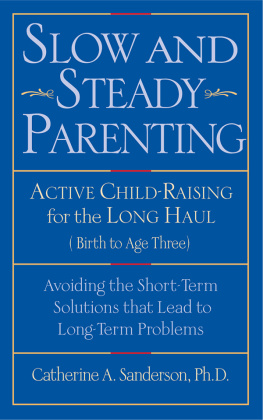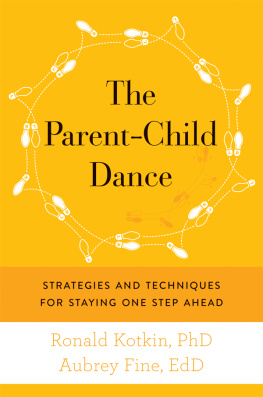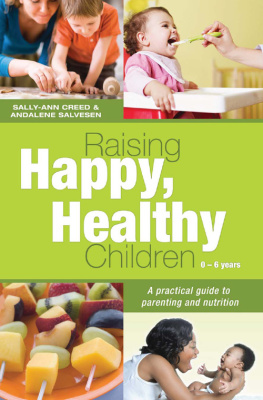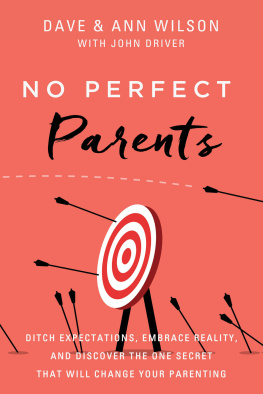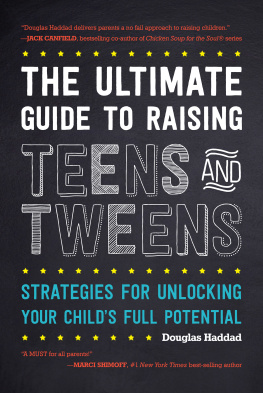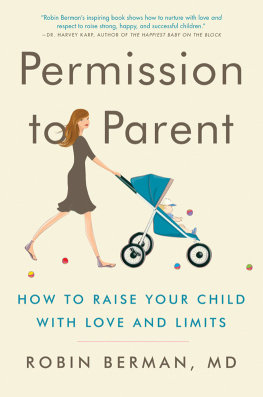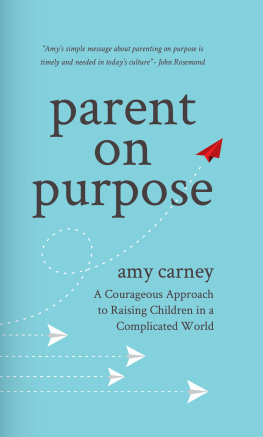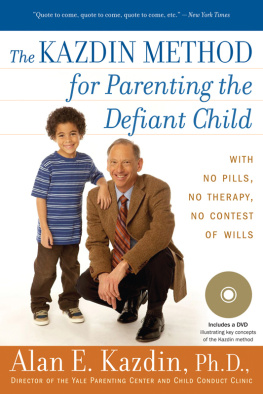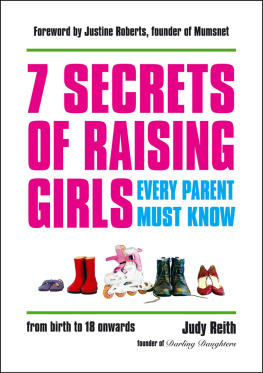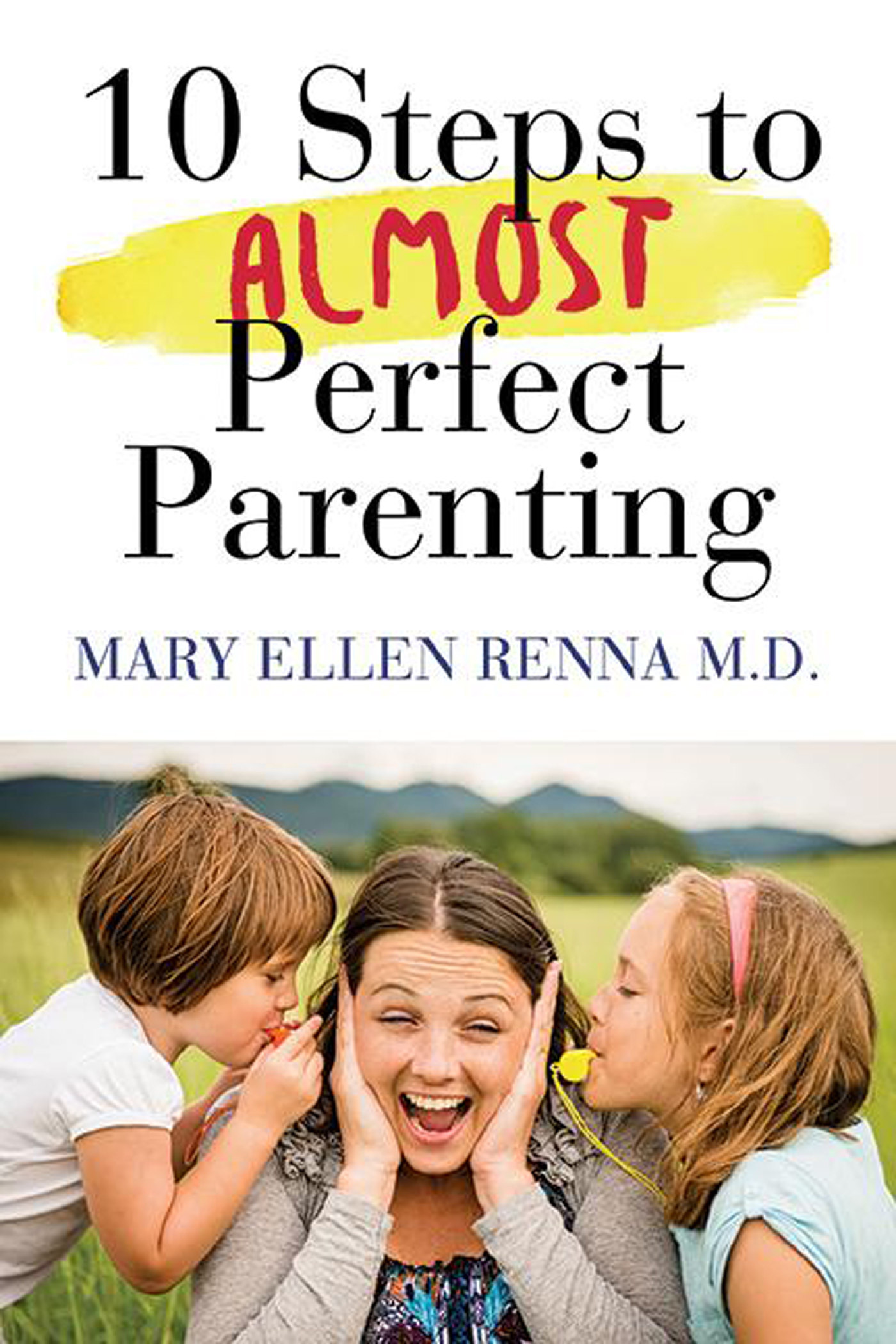
Also by Mary Ellen Renna, MD
Medical Truths Revealed: Breaking the Misinformation Chain (2008)
Growing Up Healthy the Next Generation Way (2007)

Copyright 2016 by Mary Ellen Renna, MD
All rights reserved. Published in the United States of America. No part of this book may be reproduced or transmitted in any form or by any means, graphic, electronic, or mechanical, including photocopying, recording, taping or by any information storage or retrieval system, without the permission in writing from the publisher.
This edition published by SelectBooks, Inc.
For information address SelectBooks, Inc., New York, New York.
First Edition
ISBN 978-1-59079-336-7
Library of Congress Cataloging-in-Publication Data
Names: Renna, Mary Ellen, author.
Title: 10 steps to almost perfect parenting / Mary Ellen Renna.
Other titles: Ten steps to almost perfect parenting
Description: First edition. | New York: SelectBooks, Inc., [2016]
Identifiers: LCCN 2015038224
Subjects: LCSH: Parenting. | Child rearing.
Classification: LCC HQ755.8 .R457 2016 | DDC 649/.1dc23 LC record available at http://lccn.loc.gov/2015038224
10 9 8 7 6 5 4 3 2 1
For Sara, Spencer, and Jamie,
who make the world a better place for me.
Table of Contents
Guide
Contents
W e have all heard the saying that babies dont come with an instruction manual, but raising a baby into a healthy, productive, and happy adult is by far the hardest job on the planet. Any parent will attest to that statement. We only get one shot at being a parent. There are no do-overs, so its important to try to get it right.
Parenting over the past few decades has become more of a partnership between parent and child where the child has the power to cajole, bargain, and at times even rule. As a pediatrician, the only expectations I have as to how a child should act in my office include their being respectful to others while in the waiting room and, of course, not hurting the doctor, assistant, or parent during the process of the exam. Nevertheless I am continually astounded at the behavior I see each day.
Adolescents, when asked, So what brings you in today? often dont even bother looking up from their cell phone to answer my question as I stand waiting for an answer. Or their answer might be, How should I know why I am here? in an extremely rude tone.
Children are told five or six times by their parents to stop turning off the light or get off the iPad, honey, the doctor is here before they even acknowledge that they were asked to do something, let alone follow the command given to them. Parents ask questions requesting permission from their young children, such as, Do you want the doctor to give you the shot today? Children refuse to cooperate when being examined or make demands like I will do it, but you have to take me to the store and get me a video game.
Instead, I should hear You are getting a shot today, sweetie and Honey, do as the doctor asked and open your mouth in an authoritative but calm tone. This lets the child know that you are in charge and there is nothing to worry about; nothing horrible will happen during the doctors visit.
There should be no lengthy discussion or bargaining in these types of situations. When asking a child to do something, there should be no need to say it more than once. If they dont listen the first time, a penalty must follow.
Parents must be the leaders and the decision makers. They should have expectations for their childrens behavior, and hand out an appropriate consequence when expectations are not met. A punishment that is not upsetting to the child is an ineffective consequence for a bad behavior and will not discourage a repeat of the behavior. While this consequence should be one that is upsetting to the child, physical punishment should never be used. The most effective repercussions should be given out immediatelyfor example, taking the phone or game away from the child for a set amount of time. If this is not possible other options include canceling a playdate, or another fun activity that was scheduled for the day.
There is a lot of information to absorb about good parenting in these chapters, and it is understandable if it seems an almost impossible task to follow all the steps that will be presented. But few things in life are impossible and nothing should stand in your way of attempting to do your job as a parent to the best of your abilities.
The first step discussed is to stop telling your children they are special people (except in so far as they are special to you).
Step 2 nudges parents to take a step back and stop micromanaging and controlling every aspect of their childs life.
Step 3, Let Them Fail, may be the hardest of all. Holding back on your reflexive instincts to always catch your child before they fall or falter will allow them the experience of feeling disappointment. They will learn how to handle the feeling so that its not new to them when they invariably experience it as an adult. Then they will not have a fear of failure, which will allow them to take chances!
Step 4 reinforces the rule that the parent is the boss; its what every parent thinks they are already, but... not quite.
Step 5, Become a Teacher, is instinctually obvious when read aloud but is not so easily enacted. There are so many issues to think about as a parent, but if we just take one event from each day and turn it into a valuable life lesson, we will become our childrens greatest teacher.
Step 6 addresses how children learning to solve problems has become a dying art, and we had better do something quickly if we intend to have our kids live on their own. Problem solving is a fundamental technique that must be nourished to grow into a healthy skill.
Step 7, about being a good example to your children, is of the utmost importance, since your child will almost always do as you do, as opposed to doing as you say. Their eyes are always on their parentslistening and watching and learning even when you are not aware of this. If you are the driver who invariably rolls through stop signs and guns it at yellow lights, dont expect your child to drive differently. If you continually use foul language but tell your child not to curse, be prepared for them to curse. Remember to be the person you want your children to be!
Step 8, about not giving your children everything they want, is really easy to do, and will save your pocketbook while instilling values in your child.
Step 9 is a warning to parents who may not realize they are parentifying their children (asking a minor for adult advice and giving them responsibility for our well-being). Be their parent. We dont treat friends like they are our parents, so dont treat your children like they are your friend! It becomes too much for them to handle, and at the same time it takes away power from the parent. Dont be their friend! You are their parent, so learn to act like a one.
Step 10 is all about the danger of trying to make your children become something thats all your idea. It is a big reminder to not attempt to live your life through your childs life. Dont push your dream life onto your kid.
So here it is, the 10 Steps to almost perfect parenting. Having raised three children at home and guided thousands of parents at work, I realize the enormity of the task presented to modern parents: preparing the next generation for a happy productive life. Reading this book will help you identify areas that may need some work, while possibly also validating some areas that you have already nailed down. Each step that a parent can successfully carry out will bring him or her closer to raising a child who can and will do great things on a big or small scale.


